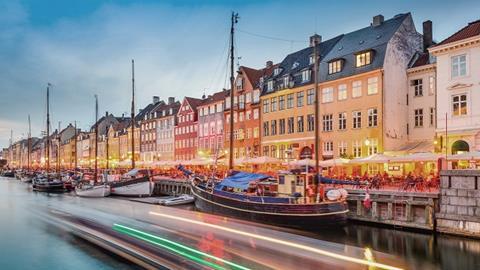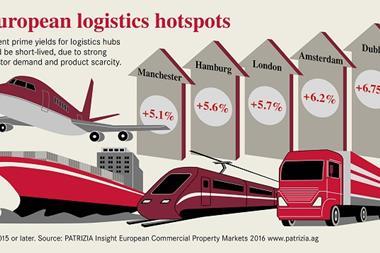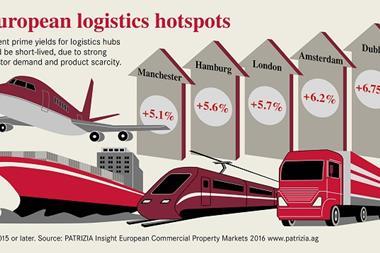Rock-bottom bond yields have changed investment opportunities dramatically. It makes sense to look abroad.

SPONSORED CONTENT FROM PATRIZIA
The combination of rock-bottom yields on government bonds and cheaper loans in a low-rate environment has changed the investment landscape dramatically and heightened the competition for property assets. Institutional investors, as well as private households, are searching high and low for the ideal residential property investment — and beyond their home borders.
More than ever before, international institutional investors are looking at the European residential real estate markets, since they offer good diversification opportunities. Our research at PATRIZIA highlights that the ideal real estate investments are not limited to the local neighbourhood, or even to the home country.
Strong domestic competition has encouraged institutional investors to look abroad, but also the recognition that staying at home would result in missing significant beta and alpha opportunities in several regions across Europe.
Transparent, diverse with a positive outlook
Cross-border investments in residential property are increasing within the eurozone and Europe, but also from outside the region. The European residential property market is characterized by increasing liquidity, making it an increasingly attractive destination for asset locations, but also by its regulatory diversity.
There is no pan-European, one-size-fits-all residential investment strategy, and any European approach will be a puzzle comprised of individual national strategies
Global portfolios therefore have a powerful diversification effect, which can improve their risk-return relationship.
While globalization is increasing, the importance of local characteristics remains crucial to investment strategy and should not be ignored. Local expertise is crucial for making the right decision, as the conditions in each individual real estate market within Europe are largely determined by local business cycles, local supply levels and local regulatory structures, as well as monetary policy by central banks.
It takes local knowledge and experts to identify the real opportunities and to avoid the pitfalls.
A puzzle solved by experts

In addition to Germany and the UK, institutional investors continue to be interested in countries such as France, Denmark, and the Netherlands. Preferred areas: Metropolitan zones, where the continued urbanization trend and insufficient new construction activities ensure an ongoing strong demand for residential space.
Cross-border activity for institutional investors is clearly on the rise within Europe, but also from further afield, with the US and Canada leading the rankings.
The globalization of institutional real estate portfolios takes time and should therefore be regarded as a long-term trend. It is comparable to the development in the equities market where investors have long recognized the diversification benefits. However, it’s not enough to make an investment and follow a “buy-and-hold” strategy.
The complex investment landscape across Europe requires a competent partner and active asset management, as PATRIZIA is keen to emphasize. There is no pan-European, one-size-fits-all residential investment strategy, and any European approach will be a puzzle comprised of individual national strategies.
Dr. Marcus Cieleback, group head of research at PATRIZIA
About PATRIZIA Immobilien AG
PATRIZIA Immobilien AG has been active as an investment manager on the real estate market in 15 European countries for more than 30 years. PATRIZIA’s range includes the acquisition, management, value increase and sale of residential and commercial real estate over own licensed investment platforms. As one of the leading real estate investment companies in Europe PATRIZIA operates as a respected business partner of large institutional investors and retail investors in all major European countries. Currently, the Company manages real estate assets worth around EUR 17 billion, primarily as a co-investor and portfolio manager for insurance companies, pension fund institutions, sovereign funds, savings and cooperative banks.






























No comments yet